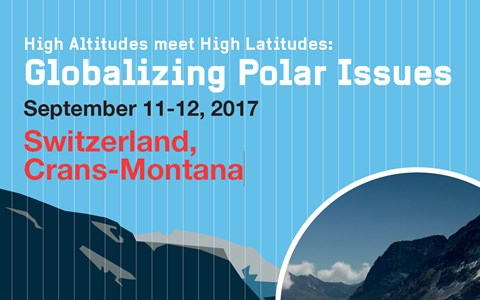The Arctic-FROST research coordination network is pleased to announce the availability of travel awards for Early Career Researchers to attend The Third Arctic-FROST network meeting and Early Career Scholars Workshop on Community Sustainability in the Arctic.
Arctic-FROST: Arctic FRontiers Of SusTainability: Resources, Societies, Environments and Development in the Changing North is a new NSF-funded international interdisciplinary collaborative network that teams together environmental and social scientists, local educators and community members from all circumpolar countries to enable and mobilize research on sustainable Arctic development, specifically aimed at improving health, human development and well-being of Arctic communities while conserving ecosystem structures, functions and resources under changing climate conditions
The theme of the Annual Meeting and Early Career Scholars Workshop is on Community Sustainability in the Arctic. Papers could deal with (1) sustainability and sustainable development in the Arctic or Sub-Arctic of particular relevance to the rest of the world, (2) comparative studies of sustainability between Arctic and other regions, (3) studies from various geographic contexts, which provide valuable insights into Arctic sustainability, (4) studies that analyze the role of outside actors in arctic sustainable development are welcome.
The main focus question of the conference is “What sustainability theories and practices work and what fail in Arctic Communities?”
At this first meeting the Arctic-FROST casts a wide net and welcomes papers that address one of the following broad categories:
- Sustainable environments
- Sustainable economies
- Sustainable cultures
- Sustainable regions/communities
All participants:
- Will present their work at the Annual Meeting (all papers/presentations will be published online and considered for inclusion in the Arctic-FROST edited volume and/or in Polar Geography)
- Will participate in discussions and round tables with leading sustainability science researchers
- Will participate in the Workshop activities immediately following the Annual Meeting
Eligibility: an applicant shall be:
- Early career scholar (5 years since PhD) or current graduate student.
- Arctic-FROST network member by registering at uni.edu/arctic/frost prepared make an oral presentation on the subject related to sustainability and/or sustainable development in the Arctic or Sub-Arctic regions at the meeting.
- Available to participate in all conference and workshop activities.
We accept applications from eligible applicants from all countries, disciplines and institution types. Applications from Indigenous scholars and Arctic residents are especially encouraged.
Funding: Arctic-FROST will cover full cost of attendance including travel and accommodations. Normally funds will be paid after the travel is completed; based on the reimbursement claim. The participants will be expected to comply with NSF travel requirements.
Application Deadline: May 10th, 2017
Application: submit extended abstract of your paper (500-750 words), short biosketch (1 page), statement of interest in workshop participation (1 page), register as Arctic-FROST member at www.uni.edu/arctic/frost
Send your applications and inquiries to ann.crawford [at] uni.edu and andrey.petrov [at] uni.edu (copy to both emails).

